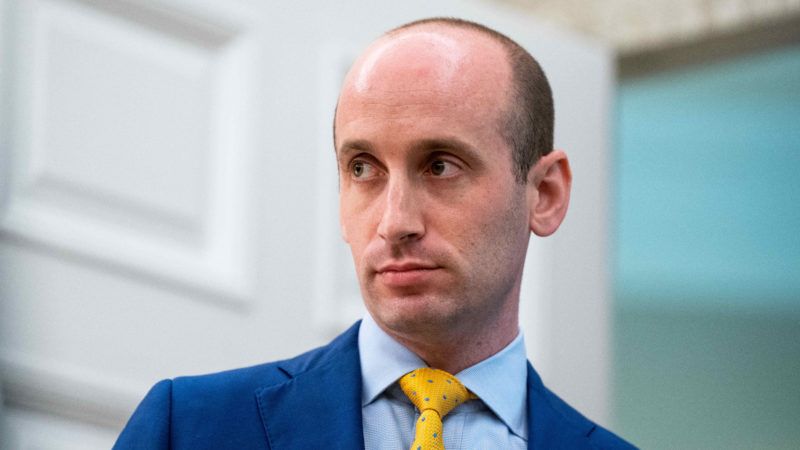The Best Thing About a Trump Loss Is Stephen Miller Leaving the White House
Just about everyone—conservatives, progressives, libertarians—should be glad to say goodbye to this cruel approach to immigration policy.

In September 2015, Stephen Miller, then an aide to Sen. Jeff Sessions (R–Ala.), emailed a Breitbart staffer about what he saw as Pope Francis's overly liberal views on immigration. "Someone should point out [to the Pope] the parallels to The Camp of the Saints," he said, referring to the 1975 French novel about the supposedly dire effects of migration.
Penned by Jean Raspail, the book follows hundreds of thousands of Indians as they set sail for France to lay claim on "the white man's comfort." In Raspail's telling, the migrants are feces-eating, "swarthy-skinned," "kinky-haired," and sexually depraved: "Everywhere, rivers of sperm. Streaming over bodies, oozing between breasts, and buttocks, and thighs, and lips, and fingers….Men with women, men with men, women with women, men with children, children with each other, their slender fingers playing the eternal games of carnal pleasure."
Miller went on to become a special adviser to President Donald Trump and one of the primary tailors of the administration's immigration policies. A farewell to Miller's approach, apparently guided by his disdain for migrants as human beings, is arguably the biggest upside to the end of the Trump administration.
Miller's record is full of freedom-impinging stains that, in theory, should unite just about everyone—conservatives, progressives, libertarians, and those in-between—in opposition. He is perhaps best known for his role in implementing a "zero tolerance" policy at the Mexican border, in which migrant parents were systematically separated from their children as part of a deterrence strategy. (Hundreds are yet to be reunited.) But while that may be the administration's most infamous immigration controversy, Miller also worked to orchestrate Trump's broader restrictionist policy. Some of those attempts came to fruition; others they didn't. Some attempts were legal; others, perhaps not.
For example: Miller sought to embed Immigration and Customs Enforcement (ICE) agents in the Office of Refugee Resettlement, the government group charged with safely assimilating migrant refugees into the United States. Miller reportedly hoped to ramp up deportations of the adults who came forward to sponsor migrant children. Unfortunately for Miller, it is against the law for the Department of Homeland Security to use federal funds in service of holding or deporting potential sponsors for unaccompanied alien minors, so they rejected the proposal. But the department did allow ICE to collect biometric data on those adults, potentially giving them the opportunity to track and deport them over minor offenses.
Similarly, Miller attempted to transfer an employee from the Treasury Department to an advisory role at the Social Security Administration in order to more easily track down personally identifiable information for deportations.
As special adviser, Miller pushed for the government shutdown at the end of 2018, which bled into 2019, lasting 35 days and becoming the longest shutdown in U.S. history—all to try to get $5.7 billion for a border wall. (The Republican-controlled Senate and Republican-controlled House did not deliver, and Trump eventually declared a national emergency.)
Unsurprisingly, Miller opposed Deferred Action for Childhood Arrivals (DACA), the Obama-era program giving immigrants who came to this country as children temporary protection from deportation. Seventy-four percent of Americans—and 68 percent of Republicans—support the program. In leaked emails between Miller and Breitbart, he railed against DACA and birthright citizenship, and likened immigrants to terrorists. After all, Miller is the man who reportedly said he "would be happy if not a single refugee foot ever again touched American soil." Though Trump promised during his campaign to protect DACA recipients, he weaponized their precarious status for political capital; when the courts declined to strike down the program, Trump moved to limit who can apply for such protections.
There are many potential downsides to Joe Biden's incoming administration, but the bar for immigration policy has been set low. At the very least, the new president is unlikely to bring in an adviser with an approach as inhumane as Miller's.
